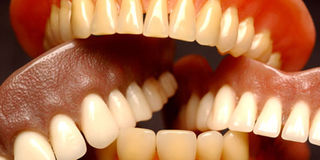Quick tips on how to lessen dental damage

If you experience a dental problem that hurts, consider it an emergency.
What you need to know:
- A dental injury can cause damage to the blood vessels or nerves. Injuries can also increase risk of infections. Untreated oral infections can spread to other parts of the neck or head, causing a serious health problem.
DENTAL ACCIDENTS HAPPEN. Equipping yourself with information on what to do when they occur can make a difference between losing your tooth and saving it.
A dental injury can cause damage to the blood vessels or nerves. Injuries can also increase risk of infections. Untreated oral infections can spread to other parts of the neck or head, causing a serious health problem.
Thus, getting immediate treatment after dental emergency is a matter of necessity.
If you experience a dental problem that hurts, consider it an emergency. This is so because even injuries that seem small can affect nerves and tissues in the teeth and may cause greater problems later in life.
Here are some tips on how to handle common dental emergencies before seeing a dentist:
Broken or chipped tooth
Try to save any pieces. Rinse the mouth immediately using warm water. Rinse out any broken pieces. Place a cold compress, i.e., an ice bag wrapped in a cloth, outside the mouth or near the chipped tooth to relieve pain and reduce swelling.
Knocked-out tooth
A knocked-out tooth is also referred to as “avulsed” tooth. It is among the most serious dental emergencies that can happen to the permanent teeth.
An avulsed tooth requires a root canal because the blood vessels, nerves, and the supporting tissues get damaged too, and unfortunately, they cannot be repaired.
If this happens, hold the tooth carefully by the crown (the exposed part of the tooth) and try to avoid touching the root or wiping the tooth as it can be easily damaged.
Keep the tooth as moist as possible by dipping it into a glass of milk or in saliva. If this is not possible, an older child or an adult can place the tooth between the gum and cheek.
Never force the tooth back into the socket. Try to get to a dentist immediately. A knocked-out tooth has a higher chance of being saved if it is re-implanted within one hour of accident.
Extruded or partially dislodged tooth
Let the tooth remain in the mouth. Place a cold compress around the affected tooth. Take a painkiller.
Toothache
Rinse the mouth using warm, salty water. Brush the teeth and use a dental floss to get rid of any food debris that may be stuck in between the teeth. Place an ice bag against the cheek near the affected area. The cold temperatures help relieve the pain.
Take an over-the-counter painkiller, such as paracetamol or ibuprofen, to further help relieve the pain. Follow dosage instructions as printed on the packaging or consult a doctor to recommend correct dosage.
An object stuck between teeth
Tiny particles of food can get stuck under the gums and if they are not promptly removed, can cause irritation. The area may also become infected. Use dental floss to gently get the object out. Do not use sharp objects like pins as they can hurt your gum or push the object deeper into the gum.
Soft tissue injuries
These include injuries to the gums, tongue, lips, and cheeks. To manage the bleeding, rinse the mouth with warm, salty water.
Apply pressure to the bleeding area using a damp piece of gauze to stop excessive bleeding. Place a cold compress outside the cheek near the affected area to relieve pain and control bleeding.
Have a question about your health? Please send it to [email protected]




